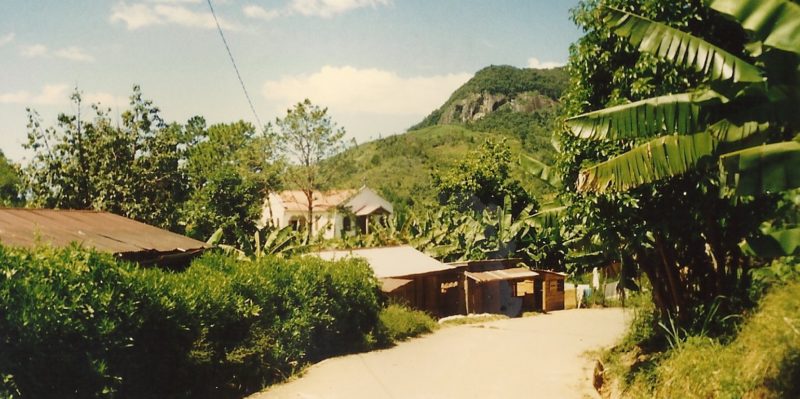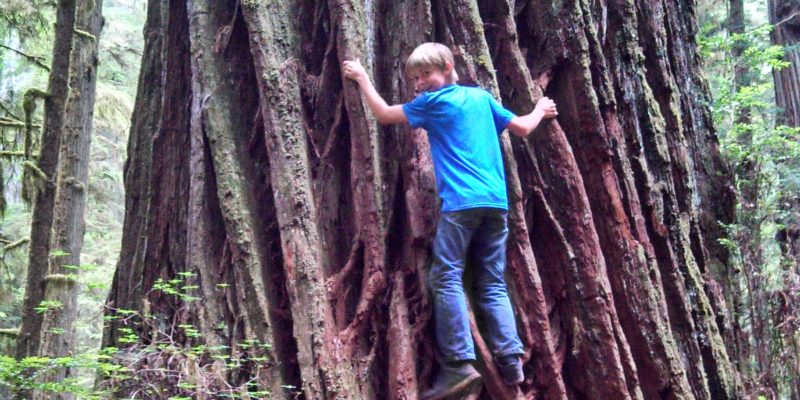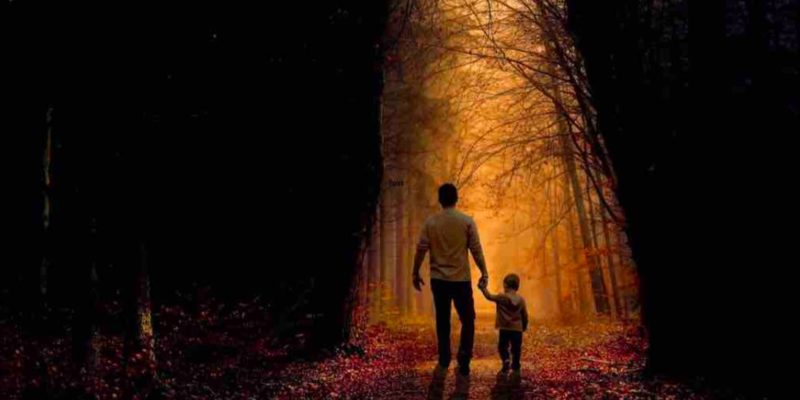It takes days to get to the village of Ranomafana, deep in the Rainforest in southeastern Madagascar. Nearing the end of a most difficult journey, you will find yourself bouncing down a narrow mountain road that was once paved, but now the potholes are so big, the driver tries to navigate around the bits of remaining pavement. Down, down, down. Over streams that cross the road, and under a wide and lush canopy that casts a dark shade much of the way down.
The landscape opens a bit more closer to the bottom. Now, a rushing river is visible peering out the right side of the truck, the road follows its bends. The forest is cut back through here, making room for farming and grazing. The thick rainforest reaches down the steep valley walls, stopping just beyond the reach of the hamlets that dot the hillside. Mud houses, straw roofs, often two stories, never any glass windows. Smoke spiraling up from a cooking fire and also from slash and burn on the hillsides, making more space for agriculture.
Mothers and the older daughters pound the shells off the rice with large sticks and carved out bowls, like a giant mortar and pestle. Alternating their strikes in a steady cadence. Straw mats line the side of the road covered in rice. Grandma is shaking them to shift the rice to help it dry. Its inevitable that some small rocks will make it onto these mats and thus into your supper. The side of the road is the only flat sunny place for this. A wooden wagons with wooden wheels is loaded with a black pig and some crops. It takes several boys to push it up the road.
Finally, down at the bottom, where the valley flattens out, is Ranomafana. It’s basically a couple of streets wide, confined by the mountains that rise up around it. It has a small medical clinic, a government building, a school, a couple restaurants for the passing trucks that carry bananas and people to and from the coast to the center of the country. A hand pulled rope ferry transports farmers from the opposite side of the river, as they carry giant bunches of bananas and sugar cane on their backs.
The pace of this town is still. Its hot and sunny. The buildings are open air, mostly weathered wooden plank walls and rusty corrugated metal roofs. The nicer buildings are concrete. It’s a regional center, serving many villages, but its still very rural. The sound of insects buzzing fills the afternoon days, a truck or motorcycle might pass by, occasionally interrupting the stillness. The humidity sticks to everything.
A friend invited me to an Easter service at a small white church on top of a knoll, overlooking the town. It was a mixture of Christianity and traditional religions with its own myths and stories. Jesus on a cross hung above the alter, but reverence to ancestors living through animal spirits of the rainforest also enter into the sermon.
My favorite place to eat in town was at the home of a lady named Laurence. Her home was about the size of a typical American living room. Her bedroom was in the back behind a wall, the kitchen in the front right corner and the dining room in the front left corner.
From the street, it looked like an old shack. The front wall was set back about six feet from the street. The kitchen window had a shelf across the lower sill sticking out another foot where she had her food spread out. Like a concession stand where the shutters lifted up creating a shady space to stand.
The first time I stopped there, I saw that she had a few eggs on her counter. I knew some French, but I had never learned how to say hard boiled. I had to act it out. We had so much fun trying to act out cracking and egg and having a mess versus cracking and egg and having a nice thing to hold and take a bite out of it. We got to the point that we both knew we were trying to translate hardboiled, but then it wasn’t quite clear if we had agreed that these were or were not hardboiled. There was a moment of trust. I paid for my egg and went to crack it on her counter. I looked up to see if she had a look of shock or not. But her face revealed a nice peaceful smile. “Dur,” she said point to the egg. “Oeuf dur”
After that, I often stopped by her home to grab an oefu dur and a baguette for lunch. The busier “truck stop” restaurant in Ranomafana served the best beef and amazing ravitoto (a type of cassava leaf stew), but Laurence’s home was my favorite place to eat. Sometimes she would make something different than usual, and if she saw me walking by, she would call out her kitchen window for me to come and have a taste. But the main reason her home was my favorite place is because when I had time to sit down in her dining room for a meal, she would always pull up a chair and sit with me. I learned about her family and she learned about mine. Her husband had passed away, her children lived in other towns. And after several months of enjoying meals in Laurence’s home, sitting with her, it was time for me to return back to the United States. And that’s when I came to understand that, in a way, I had never really left home when I traveled to this distant place. I had just discovered another home.




